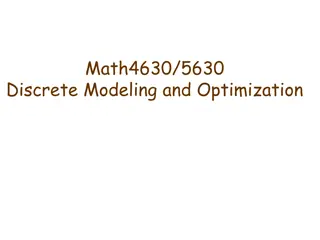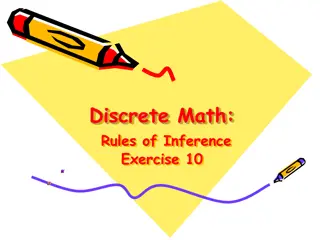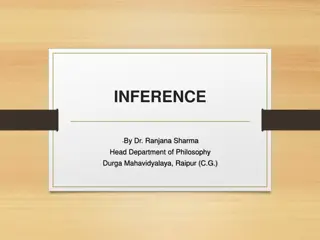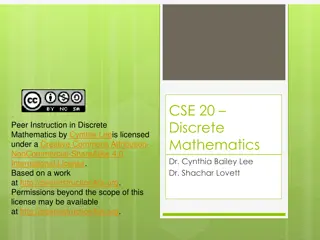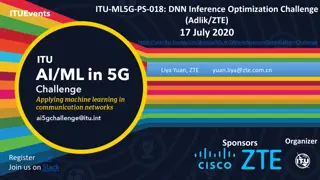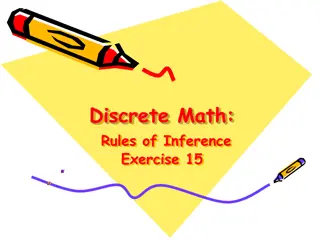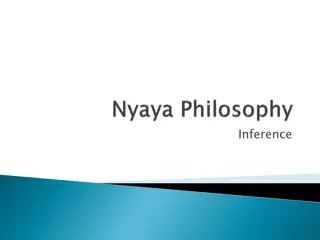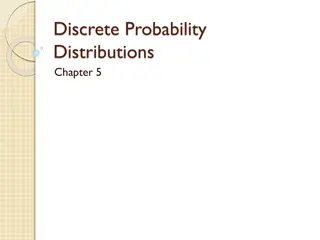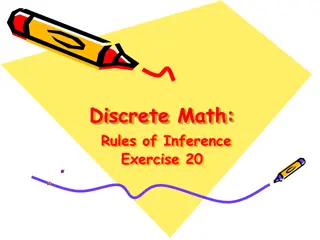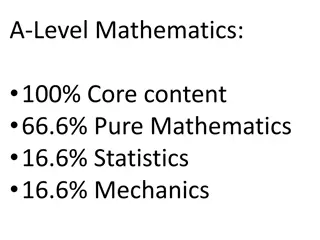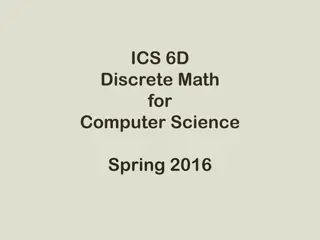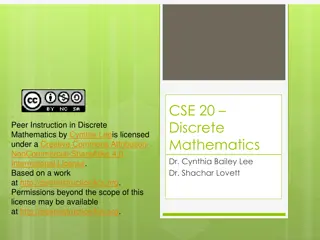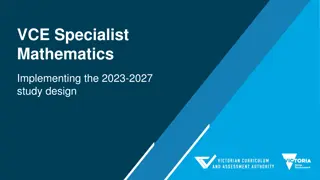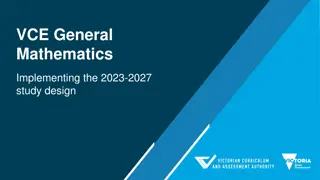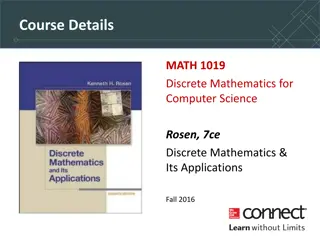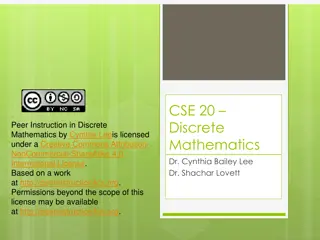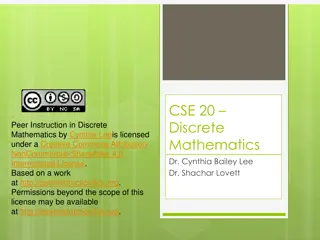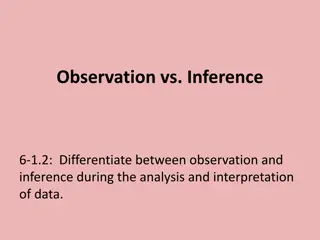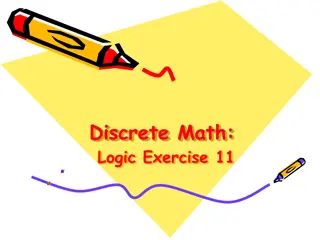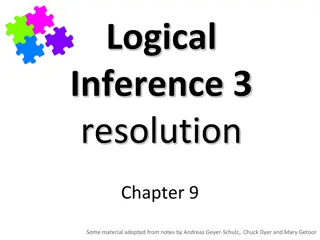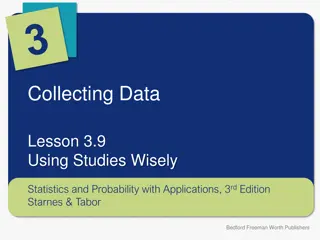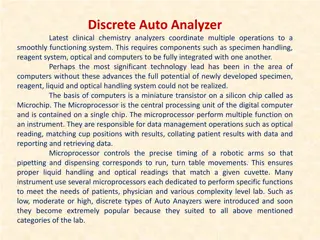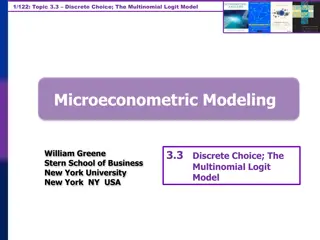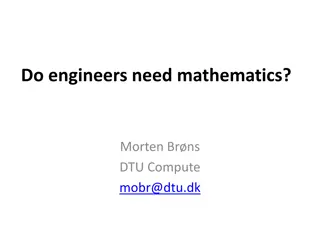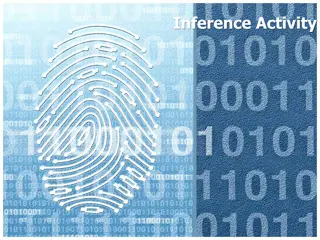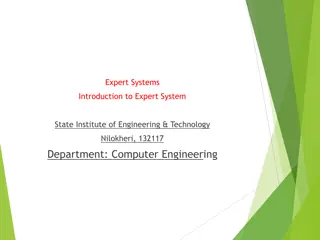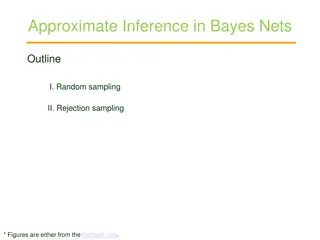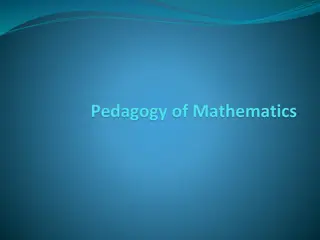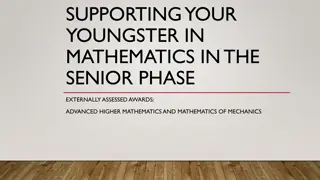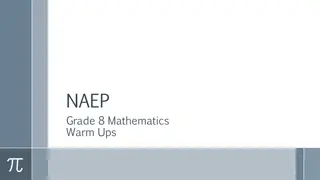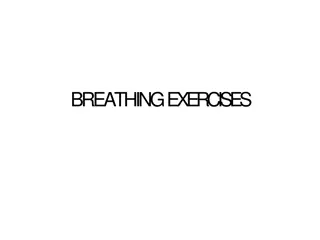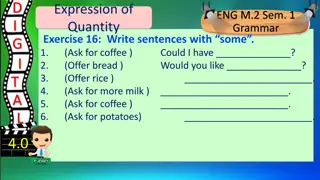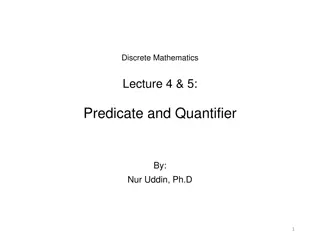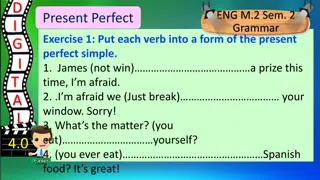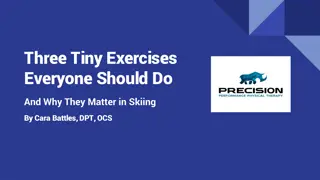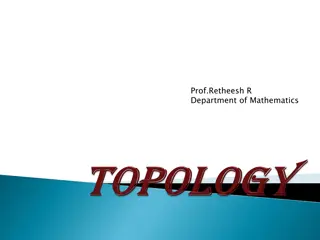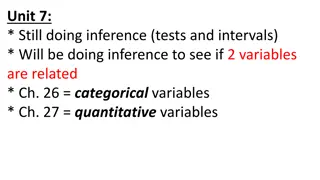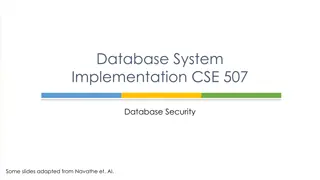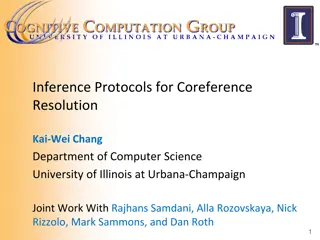Rules of Inference Exercises and Solutions in Discrete Mathematics
Explore exercises and solutions in discrete mathematics focusing on rules of inference. Analyze logical premises and draw relevant conclusions using rules such as modus tollens, modus ponens, and disjunctive syllogism. Understand the application of these rules in different scenarios to reach valid deductions.
Download Presentation

Please find below an Image/Link to download the presentation.
The content on the website is provided AS IS for your information and personal use only. It may not be sold, licensed, or shared on other websites without obtaining consent from the author. Download presentation by click this link. If you encounter any issues during the download, it is possible that the publisher has removed the file from their server.
E N D
Presentation Transcript
Discrete Math: Rules of Inference Exercise 6
Exercise For each of these collections of premises, what relevant conclusion or conclusions can be drawn? Explain the rules of inference used to obtain each conclusion from the premises. a) If I take the day off, it either rains or snows. I took Tuesday off or I took Thursday off. It was sunny on Tuesday. It did not snow on Thursday. b) If I eat spicy foods, then I have strange dreams. I have strange dreams if there is thunder while I sleep. I did not have strange dreams.
Solution a) Because it was sunny on Tuesday, we assume that it did not rain or snow on Tuesday (otherwise we cannot do anything with this problem). If we use modus tollens on the universal instantiation of the given conditional statement applied to Tuesday, then we conclude that I did not take Tuesday off. If we now apply disjunctive syllogism to the disjunction in light of this conclusion, we see that I took Thursday off. Now use modus ponens on the universal instantiation of the given conditional statement applied to Thursday; we conclude that it rained or snowed on Thursday. One more application of disjunctive syllogism tells us that it rained on Thursday. b) Using modus tollens we conclude two things-that I did not eat spicy food and that it did not thunder. Therefore by the conjunction rule of inference, we conclude "I did not eat spicy food and it did not thunder."
References Discrete Mathematics and Its Applications, McGraw-Hill; 7th edition (June 26, 2006). Kenneth Rosen Discrete Mathematics An Open Introduction, 2nd edition. Oscar Le in A Short Course in Discrete Mathematics, 01 Dec 2004, Edward Bender & S. Gill Williamson


